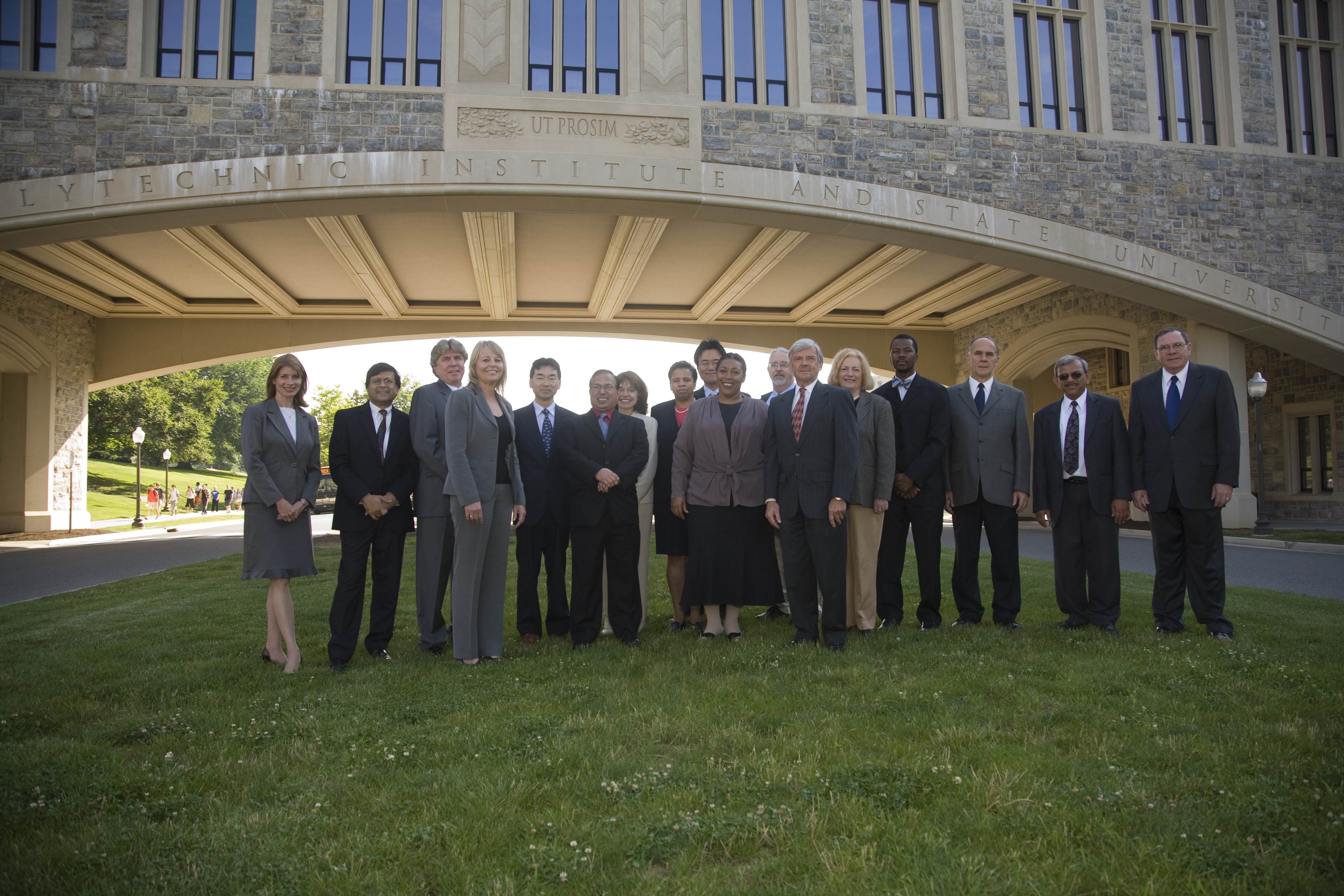Eleven to graduate from innovative program addressing nation's business faculty shortage

On Friday, July 31, Virginia Tech's Pamplin College of Business will graduate its second group of participants in an innovative program the college developed to help alleviate the critical national shortage of business-school faculty.
The college is among four U.S. business schools that launched last year the first post-doctoral ¡°bridge-to-business¡± programs approved by AACSB International (Association to Advance Collegiate Schools of Business), the accrediting organization for business schools worldwide. The programs are designed to prepare individuals with doctorates in non-business, but related, disciplines for new careers as business faculty members.
The 11 participants this summer in Pamplin¡¯s eight-week, residential program hold doctorates in a number of fields, including economics, education, and hospitality and tourism management. Almost all are faculty members at various institutions. Seven of the 11 enrolled in the finance track; four were in the marketing track.
The graduating individuals are
- Jacqueline Agesa, of Proctorville, Ohio;
- Kenneth Anderson, of Washington D.C.;
- Carroll Brown, of Cullowhee, N.C.;
- Kishor Guru Gharana, of Lake Charles, La.;
- Suzy Green Harney, of St. Thomas, Virgin Islands;
- Hiroyuki Imai, of State College, Penn.;
- Scott Kjar, of Thornton, Iowa;
- Kyuho Lee, of Sylva, N.C.;
- Frank Moseley, of Morrison, Colo.;
- Scot Stradley, of Glyndon, Minn.; and
- Betsy Tretola, of Oakton, Va.
"This is a quality program run by professionals, said Carroll Brown, an assistant professor at Western Carolina University. Although the pace was quick and the learning intense, I acquired the skills and knowledge needed to bridge to another discipline," she said. "Having experts in the field share their years of experience in teaching and research methods has been priceless from a time perspective."
In summing up how he has benefited from the program, Scot Stradley, an economics professor at Concordia College, noted that accomplished professors, intense graduate level learning in the subject, and research focus have prepared me to both teach and publish in finance.
The participants will receive a certificate of completion, indicating that they are "academically qualified" in their respective disciplines for a period of five years from the date of graduation, said Pamplin Dean Richard E. Sorensen. This means that they have gained sufficient additional knowledge and skills, through course work and research, to meet the initial qualifications for finance or marketing faculty, he said, but they will need to undertake appropriate scholarly activities to maintain their qualifications beyond the initial five-year period.
Sorensen, Virginia Tech Vice President and Dean for Undergraduate Education Daniel Wubah, AACSB International President and CEO John Fernandes, and faculty members who taught in the program will participate in the certificate ceremony, to be held in the board room of the Holtzman Alumni Center.
"Seven of the participants have already been reassigned into new positions to teach and conduct research at their home universities, using the skills obtained in this program," said Frank M. Smith, the program's director. "AACSB is providing job search assistance to other participants who are currently seeking employment in a business school". Smith added that, to date, more than 20 inquiries have been made concerning next year's program, which will include a track in management. Two students, he said, have already been offered admission.
Sorensen, who chaired AACSB's working group on the doctoral faculty shortage, said there are about 1,000 job openings for Ph.D.-holding faculty at more than 400 AACSB-member schools in the United States. "The shortage of academically qualified faculty is projected to increase to 2,400 openings by 2012."
The reasons for the faculty shortage, he said, include the 5 percent decrease in business doctorates earned worldwide. According to AACSB, 5,872 doctorates were earned in the 1995-99 period, compared with 5,611 in the 2000-05 period. Other supply-related reasons are competing employment offers from government agencies and industry; the fact that about half the doctoral graduates from U.S. institutions are foreign students, many of whom subsequently return home; and the retirements of existing faculty members. Meanwhile, on the demand side, demand for faculty has risen, driven by significant increases in business-student enrollments.
AACSB solicited proposals for post-doctoral bridge programs from its member schools in February 2007. In September, it approved programs at only five business schools at Tulane University, the University of Florida, University of Toledo, Grenoble Ecole de Management in France, and Virginia Tech's Pamplin College of Business.
To apply to Pamplin's post-doctoral bridge program for 2010, e-mail Frank Smith, or call (540) 231-4972.




.jpg.transform/m-medium/image.jpg)